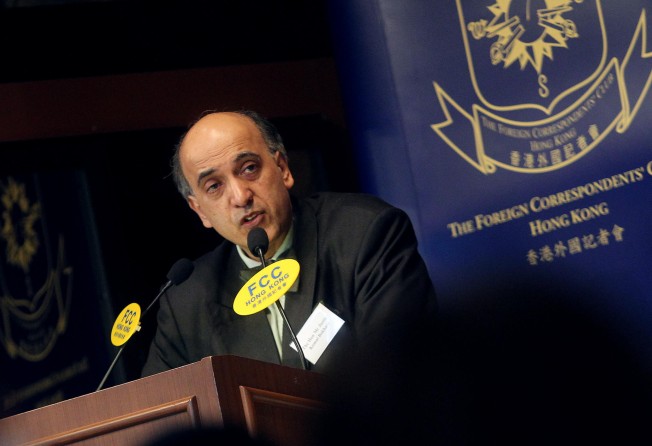Patriots can be Beijing critics too, liberal judge Kemal Bokhary says
People who single out unpleasant aspects of the mainland are not necessarily disloyal to the country, liberal judge Kemal Bokhary says

Criticism of the mainland in areas one dislikes does not amount to being unpatriotic - a trait Beijing officials have signalled should disqualify one from vying for chief executive - a liberal judge of the top court says.
Justice Kemal Bokhary, a non-permanent judge at the Court of Final Appeal, also said a referendum should be held for certain issues to increase the level of democracy.
If you see something that you do not like about the mainland and you criticise it, that is not an attack against the country. It is simply a suggestion for improvement. That is not unpatriotic
The retired judge spoke in a February interview with Chinese University publication Hong Kong Student Law Gazette published yesterday. His words came about a month before Qiao Xiaoyang , chairman of the National People's Congress Law Committee, said on March 24 that future chief executives must "love the country and love Hong Kong" and "not confront the central government".
Qiao's sentiments were shared by Chinese People's Political Consultative Conference chairman Yu Zhengsheng and Hong Kong and Macau Affairs Office director Wang Guangya , generating heated debate on who is patriotic and what the concept entails.
The outspoken Bokhary, who believed he was obliged to accept retirement because of his liberal views, also said full democracy could still be unattainable although the central leadership had pledged to allow universal suffrage in the 2017 chief executive election.
"Democracy in Hong Kong may always be limited for the simple reason that … the selection of the chief executive will involve nomination," he said.
He could see "some prospect" of real democracy, though, because the chief executive must get along with legislators, which Beijing said could all be elected by a one-man-one-vote system in 2020 at the earliest.
He put forth a formula for more democracy. "If you have a reasonable way for people to participate effectively in democracy, probably with a balance between representative democracy through elections and some direct democracy on certain issues through referendum, then I think that is acceptable."
And in a rare demonstration of his knowledge of state affairs, Bokhary commented on the 1989 crackdown on Tiananmen Square. "What happened on June 4 was not between people who were patriots and people who were not … It is necessary to debate certain things without accusing each other of being unpatriotic."
Elsie Leung Oi-sie, the former secretary for justice who is now vice-chairwoman of the NPC Basic Law Committee, has previously accused judges of lacking understanding in mainland affairs when adjudicating cases.
On Article 23 - a Basic Law provision on national security that sparked a 500,000-strong opposition march a decade ago - Bokhary questioned if it must be ratified, given existing laws that achieved the same aim.
"In what sense has the mainland been threatened, and in what sense has Hong Kong been threatened, by the absence of this legislation so far?" he asked. "Could someone really threaten the security of the state without breaching some existing law?"
Chief Executive Leung Chun-ying said it was "a constitutional duty" to legislate Article 23, though this was not his priority.
"Article 23 has become a focus of what the Hong Kong people worry about," Bokhary said. "You cannot talk people out of this fear."